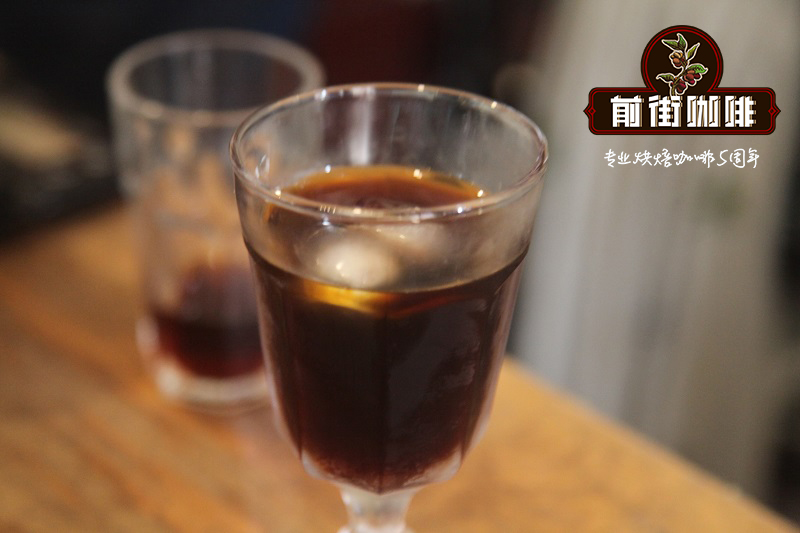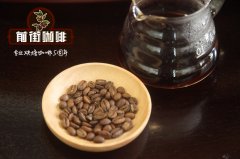Ethiopian Coffee Farm | introduction of Layo Taraga Cooperative in GUJI producing area

Professional coffee knowledge exchange more coffee bean information please follow the coffee workshop (Wechat official account cafe_style)
Ethiopian coffee is everything. They can be delicate, floral and tea-like. They are full of bright and soft acidity and a hint of fruit. This incredible diversity of flavors and features can be traced back to each different micro-region and how each coffee is processed after picking. Coffee thrives in the dense environment provided by Ethiopian forests. After all, this is where coffee was born.
Until recently coffee grown by smallholder farmers and cooperatives in Ethiopia had to be sold through ECX in which batches were classified by general region and quality (level 1-5). In March 2017, the Prime Minister of Ethiopia approved a reform that would allow co-owned washing treatment stations to export coffee directly, which would separate top coffee, raise prices for farmers and increase recognition of Ethiopia's best coffee. This enhanced traceability enables us to purchase directly from the same washing treatment station year by year and opens up the potential for partnerships with individual farmers or small groups in the community.
The Layo Taraga Cooperative is located in the Uraga district of Oromia in the Guji region and is located in one of the most important coffee growing areas in Ethiopia. The cooperative has about 500 members who grow shaded garden coffee on an area of about 1 hectare. The area is about 2200 masl above sea level, making it one of the highest coffee-growing areas in the country. It also benefits from fertile clay soil and annual rainfall of about 1500-2000 mm a year.
Layo Taraga is a member of the Oromia Coffee Farmers' Cooperative Union (OCFCU), founded in 1999. As of 2014, OCFCU, one of the largest coffee unions in Ethiopia, was an umbrella organization of 240 cooperatives, representing about 250000 coffee farmers. As one of the union's precious cooperatives, Layo Teraga has received funding for improvements in recent years, including new McKinnon disc pulpers, tile fermentors and storage sheds at washing treatment stations.
During the harvest season, farmers send freshly picked cherries to the washing station, then sort them under ripe, ripe and ripe cherries, and then remove them. The coffee is then fermented under water for 8-12 hours, in which the remaining mucus is decomposed by bacteria. After that, the coffee is washed in the channel, soaked, and then placed on a raised bed to dry for 10-14 days until it reaches 11% moisture.
Location: Haro Wachu / Uraga / Guji
Variety: bourbon
Process: washing
Altitude: 1950-2000 m
Taste: peaches, persimmons, flowers
Qianjie coffee is recommended to be brewed with 90-02 degrees water, which has a good flower aroma, as well as the flavor of apricot and tropical fruit.
Important Notice :
前街咖啡 FrontStreet Coffee has moved to new addredd:
FrontStreet Coffee Address: 315,Donghua East Road,GuangZhou
Tel:020 38364473
- Prev

Introduction to the Source and Flavor characteristics of Indian SL9 Coffee Variety. What are the coffee varieties in India?
Professional coffee knowledge exchange more coffee bean information please follow the coffee workshop (Wechat official account cafe_style) SL9 is a special hybrid from India, it seems to be champion selected beans. I don't know much about the latter. If you want to try medium baking, the official recommended devices are: Italian extra thick / Ailo pressure / V60 official flavor description: papaya, green tea, vanilla chestnut.
- Next

How to drink Indian Bengal Tiger Robusta Coffee beans
Professional coffee knowledge exchange more coffee bean information please follow the coffee workshop (Wechat official account cafe_style) India Royal Robusta, high-altitude manor beans, the legendary royal kaapi royal, Luodou in the best. As a combination of Italian beans, kaapi royal's extremely rich fat can enhance the mellow feel of coffee, especially suitable for making lattes and kapos. The size of 18 mesh
Related
- Does Rose Summer choose Blue, Green or Red? Detailed explanation of Rose Summer Coffee plots and Classification in Panamanian Jade Manor
- What is the difference between the origin, producing area, processing plant, cooperative and manor of coffee beans?
- How fine does the espresso powder fit? how to grind the espresso?
- Sca coffee roasting degree color card coffee roasting degree 8 roasting color values what do you mean?
- The practice of lattes: how to make lattes at home
- Introduction to Indonesian Fine Coffee beans-- Java Coffee producing area of Indonesian Arabica Coffee
- How much will the flavor of light and medium roasted rose summer be expressed? What baking level is rose summer suitable for?
- Introduction to the characteristics of washing, sun-drying or wet-planing coffee commonly used in Mantenin, Indonesia
- Price characteristics of Arabica Coffee Bean Starbucks introduction to Manning Coffee Bean Taste producing area Variety Manor
- What is the authentic Yega flavor? What are the flavor characteristics of the really excellent Yejasuffi coffee beans?

